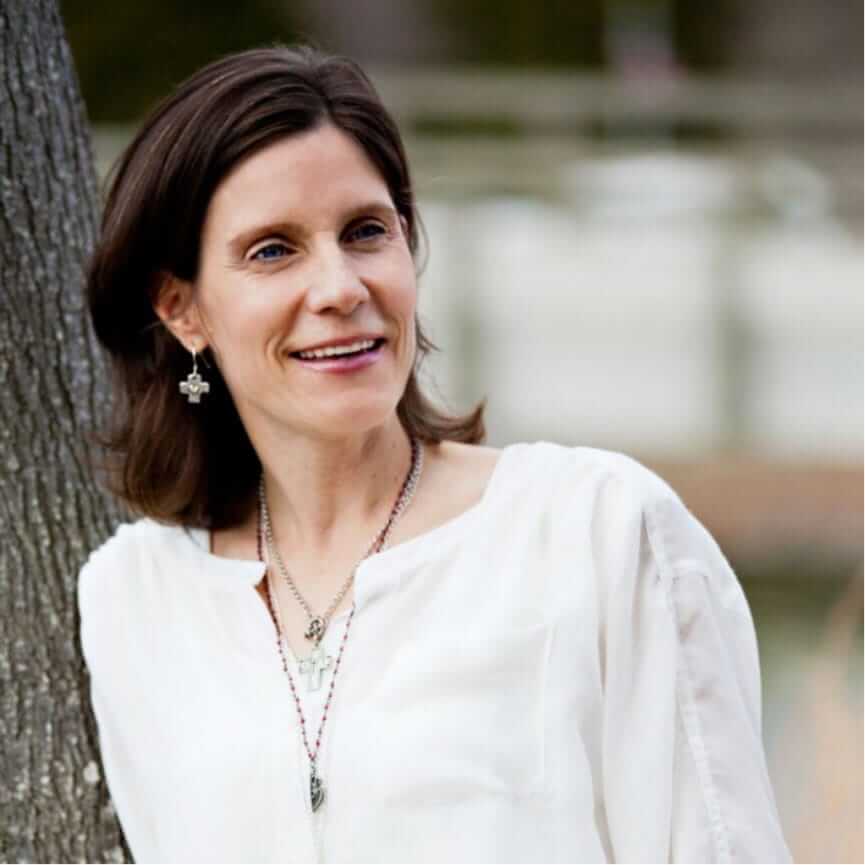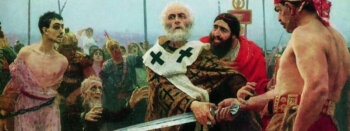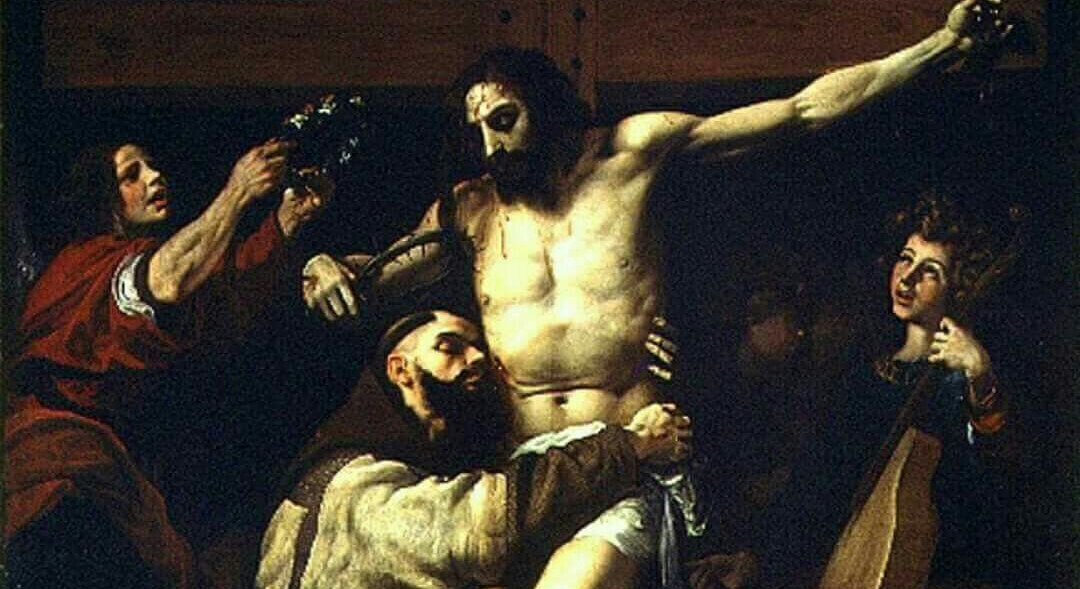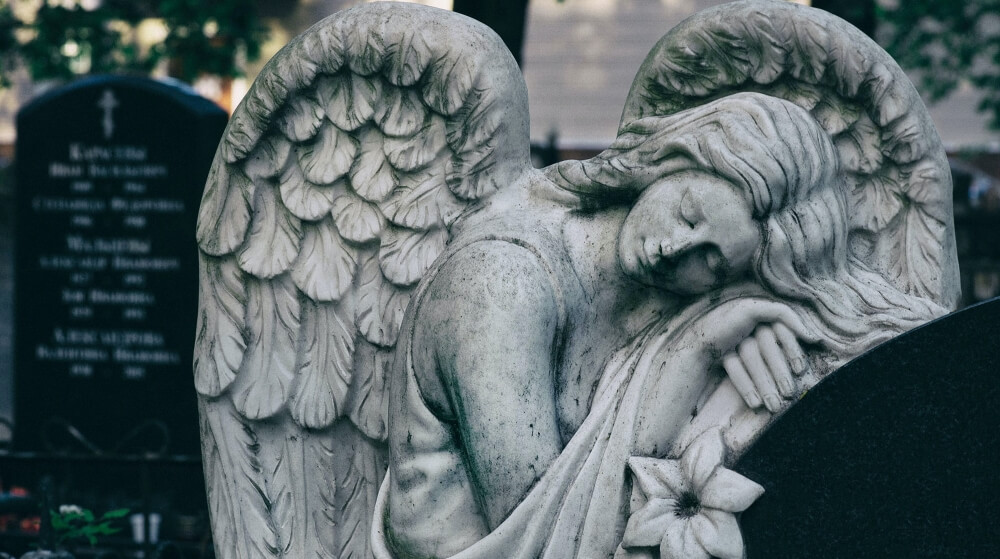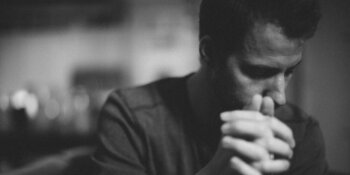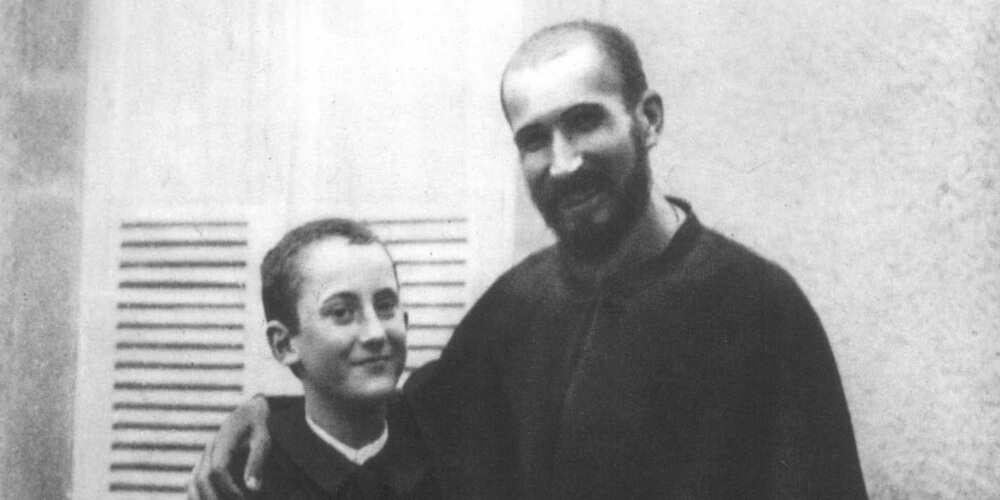
Charles de Foucauld’s body was found in a ditch in front of the small fort where he had lived as a contemplative serving the poor in Tamanrasset, Algeria.
Shot in the head by a marauder, the holy priest died a martyr.
Many people know about his writings now, but very few knew about him when he died on December 1st, 1916.
Yet this was exactly how he had hoped to die: “Alone, like Christ.”
He had once written to his cousin, Marie de Bondy, these words:
My place is in the desert. To establish myself over there, to be a priest and a hermit, for I believe that would be to the great glory of God, even if I remained alone…
St. Charles de Foucauld
On May 15th, 2022, Blessed Charles de Foucauld, along with nine others, was canonized in St. Peter’s Square by Pope Francis.
It’s time to learn his story.
From Sin to Sanctity…
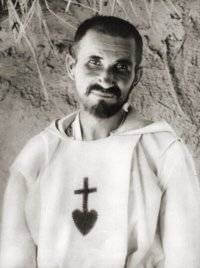
Like many of the saints, Charles de Foucauld’s path to sainthood was marked by twists and turns. The same man who wished nothing “but to be effaced” was once lazy and arrogant, a man led “by his passions,” having been called a “playboy” by someone who knew him in his years as a military officer.
A recent book about his life written by Jean-Jacques Antier—titled Charles de Foucauld (Charles of Jesus)—reads more like an intriguing novel than a typical book about a saint.
Perhaps this is because the life of Charles de Foucauld was, in many ways, one of extremes. A bourgeois heir, a boarding-school student, an army officer, an explorer, de Foucauld once described himself this way: “I was all egoism, all vanity, all impiety, all desire for evil; it was as if I had gone a little mad.”
It is hard to believe that this same man would eventually be described this way:
[He was] A true contemplative, at the same time totally committed to others, particularly those most suffering; so near to God; so close to the poor—he has provided an example of faithfulness, even unto martyrdom.
Charles de Foucauld by Jean-Jacques Antier
Born in France to an aristocratic family on September 15th, 1858, Charles de Foucauld’s parents died rather suddenly, one after the other, when he was only six years old. His pious grandfather took in Charles and his younger sister and they lived with him until the grandfather’s death at which time Charles was eighteen years old.
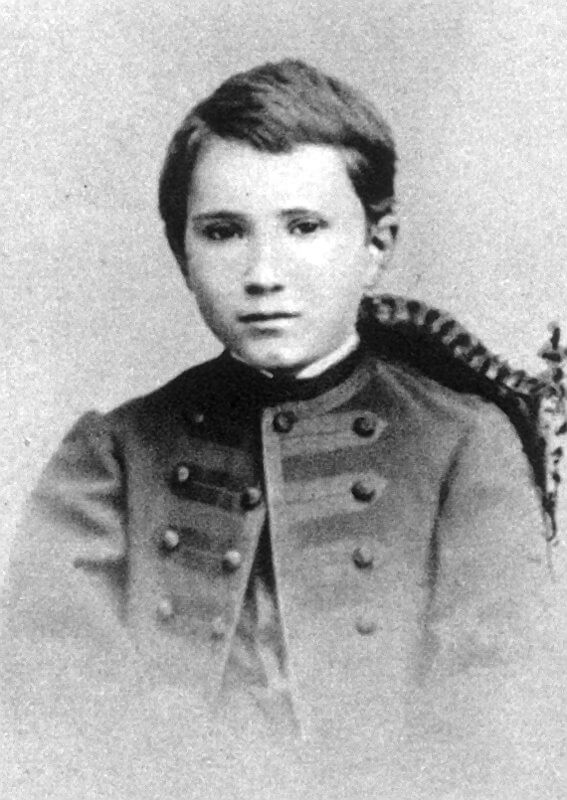
Although his grandfather had tried to bring him up in the Church, Charles rejected the Faith as a teenager. Still, he was sent to a boarding school run by the Jesuits. Unfortunately, having lost his faith, Charles rebelled against the discipline of the school which he felt was imposing upon him a way of life that forced religious observance among other ascetic practices.
In a letter he wrote to a friend, he said he found the boarding school to be “detestable.” In this same letter he wrote:
I lived the way it is possible to live once the last spark of faith has been extinguished. I am bored to death.
Charles de Foucauld by Jean-Jacques Antier
Declaring himself a “freethinker,” Charles later said, “I was so free, so young. There remained not a trace of faith in my soul.”
After obtaining his degree and leaving school, he hungered for adventure and thought he might find it in the military life. So he passed the entrance exams for the Saint-Cyr military school and replaced the boarding school life with a military one.
When his grandfather had passed away he had received a large inheritance and, even while in school, he lived lavishly, enjoying food, parties, and expensive cigars. While in the army, he made friends with others who also enjoyed a lavish lifestyle.
In what became an “ambiguous” relationship with the army, Charles was sent to serve under a captain who was known for his intense discipline. The captain gave him poor reports, once writing:
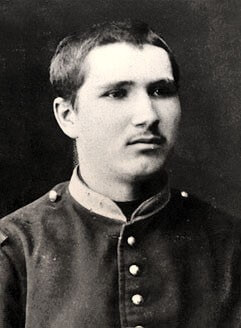
“Being very young, this officer lacks firmness and enthusiasm. Of undeveloped character, he has much work ahead before he can perform at the level expected.”
Charles de Foucauld by Jean-Jacques Antier
Finally, after being sent to Algeria, he was dismissed from his unit because he had brought with him a mistress. In 1882, he resigned from the army.
Searching for Adventure, Finding God
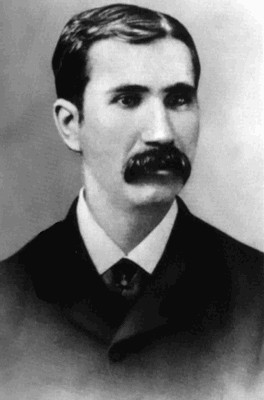
Shortly after leaving the army, with his taste for adventure still potent, Charles ventured to Morocco, hoping to explore some of its untapped territory. Disguised as a Jew, and with the help of a rabbi, he spent a year there, learning about the culture and exploring a part of the land where few had ventured. He wrote a book about his experience and then, in 1886, returned to France.
While he had matured during his time in Morocco and given up many of his old ways, once back in France Charles faced what he had continued to experience throughout his life: “A profound malaise, an existential emptiness.”
France was also where his cousin, Marie, lived. Marie, who had previously tried to convince him to return to the Faith of his youth, was now married with young children. Charles had once tagged along with his devout cousin to Mass when they were children. He had always been intrigued by her “holiness,” even though he did not understand it. She would later have an immense influence on his life.
It was in Paris that Marie arranged for her cousin to meet a priest, Father Huvelin, at Notre Dame Cathedral. Unbeknownst to Charles at the time, this priest would remain a close spiritual advisor to him for the rest of his life.
Marie told Charles to find Fr. Huvelin so that he might speak to him about his lack of faith, which worried her. Charles reluctantly agreed and found Fr. Huvelin in the confessional. Attempting to explain that he was not there for confession, Charles was told to remain in the confessional by Fr. Huvelin. After hearing Charles speak for a while, Fr. Huvelin told him to “kneel and confess your sins.” Charles continued to protest, but eventually did as he was told.
Afterwards, Fr. Huvelin asked him if he had eaten anything and, when Charles said he had not, Fr. Huvelin told him to go straight to Holy Communion. Charles expressed later that it was this “encounter with Christ” that enlivened his faith and turned his life around.
Like a man brought back from the dead after this personal encounter with Christ, Charles told anyone around him who would listen that
The moment I realized that God existed, I knew that I could not do otherwise than to live for him alone.
St. Charles de Foucauld
New Purpose and Zeal

His life dramatically changed, Charles wanted to unite himself with Jesus. In order to do so, he joined a Trappist monastery in Ardeche, and then, desiring to live in more austere circumstances, transferred to one in Akbes, Syria. Having embraced this monastic life, he woke everyday at 2 a.m. to begin a day of exhausting work and prayer. He gathered hay, harvested crops, picked grapes, hauled rocks, sawed wood, and more.
And he prayed.
It was here that Charles began to experience the peace he had longed for. He wrote to his sister about this period in his life:
My soul is experiencing a profound peace, which grows daily. It increases faith, which calls for gratitude. I am where the good Lord wants me to be. In a year, I shall make my profession. In my heart, I long to be bound through those vows, but I am already bound through my most every wish.
Letter to his sister
It was also during this time that Charles felt a calling to start a new order, one that was based on a community “in line with his ideal of the ‘radically humble’.”
He shared this wish with Fr. Huvelin in a letter in 1893 and waited patiently for his reply. Four months later he received it, but was devastated by the answer. Fr. Huvelin told him to continue his theological studies and to “concentrate on inner virtues, perfect your obedience to the rule and to your superiors…as for the rest, we shall see later.”
Charles, though sad, did as he was told and continued to pray for the virtue of obedience.
Still, in the meager amount of time he had outside of prayer and work, he began to develop the rule of the “Little Brothers of Jesus,” which was the name he planned to give to the order that he still felt God was calling him to establish. He decided that this order would follow many of the regulations of Saint Benedict’s order such as eight hours of work and eight hours of prayer, lifelong commitment to one house, strict seclusion, and perpetual silence. Because he wanted his order to be “suitable for illiterate brothers,” he eliminated the requirement to pray the Divine Offices because they were in Latin, and replaced them with prayer, the Rosary, and five hours of adoration before the Blessed Sacrament.
Instead of being allowed to pursue his idea for a new community, however, he received orders to go to Rome to study theology at a university there. Apparently his superiors felt that he was called to the priesthood so that he could live out his vocation as a teacher and be an inspiration to others. Again, disappointed in this news, Charles obediently resolved to follow God’s will, even if it did not seem to coincide with his own. He went to Rome.
After two months in Rome, he finally met with the man who had called him there, Dom Sebastien Wyart. This holy man asked Charles to tell him how he was feeling about his situation. In what Charles called “obedience to the Holy Spirit,” he remained silent, not wanting to complain that he did not envision himself as a student of theology but as a hermit working with the poor.
After he was dismissed, and later on that very day, Dom Wyart summoned him once more. This time he said:
You are free, my son. You can follow the particular vocation that seems good to you. After prayer, study, and reflection, the fathers recognize in you a special vocation outside the rule. That is what the council has decided, unanimously. May God guide your footsteps.
Dom Sebastien Wyart
Overwhelmed, Charles felt grateful to God. He understood that—having been obedient—his prayer was finally answered.
Seeking A Deeper Calling
Charles had once said that he desired to live like Jesus of Nazareth. Soon after meeting with Dom Wyart, he left Rome to do just that.
After arriving in Nazareth where Jesus had lived, he found work as a gardener and sacristan for the Poor Clares, first in Nazareth and then in Jerusalem. The sisters were somewhat reluctant at first—not sure how to feel about this young man in their service—but when they witnessed his devotion to Jesus at Mass and during Adoration of the Blessed Sacrament, they began to see that he was, indeed, authentic.
Fr. Huvelin wrote to Charles during this time and continued to be a guide to him. In a letter written in 1899, Fr. Huvelin said:
We obey in silence. We do good by what we are more than by what we do. We do good by being of God, by belonging to God. Yes, stability. Gather moss. Let the grace of God penetrate, grow, and solidify in the soul. Avoid agitation and endless new beginnings. It is true that we are always beginners, but at least always in the same way and the same direction.
Letter to Charles from Fr. Huvelin
Charles spent two years near the nuns, living and working in solitude and prayer. Then he returned to France.
His desire to live as a hermit and to work with the poor continued to urge him on. Back in France, he met again with Fr. Huvelin and expressed his desired to become a hermit. Fr. Huvelin continued to counsel Charles to be obedient to the will of God: “Keep your heart ready, and let it be filled with what Christ wishes to place there.”
God was indeed calling him to the priesthood. On June 9th, 1901, in the cathedral in Viviers, Charles de Foucauld was ordained a priest by Archbishop de Montéty.
Although he would never again carry out his functions as a priest in Viviers, Father de Foucauld celebrated his first Mass on the morning of June 10th, 1901, with his sister present.
New Mission
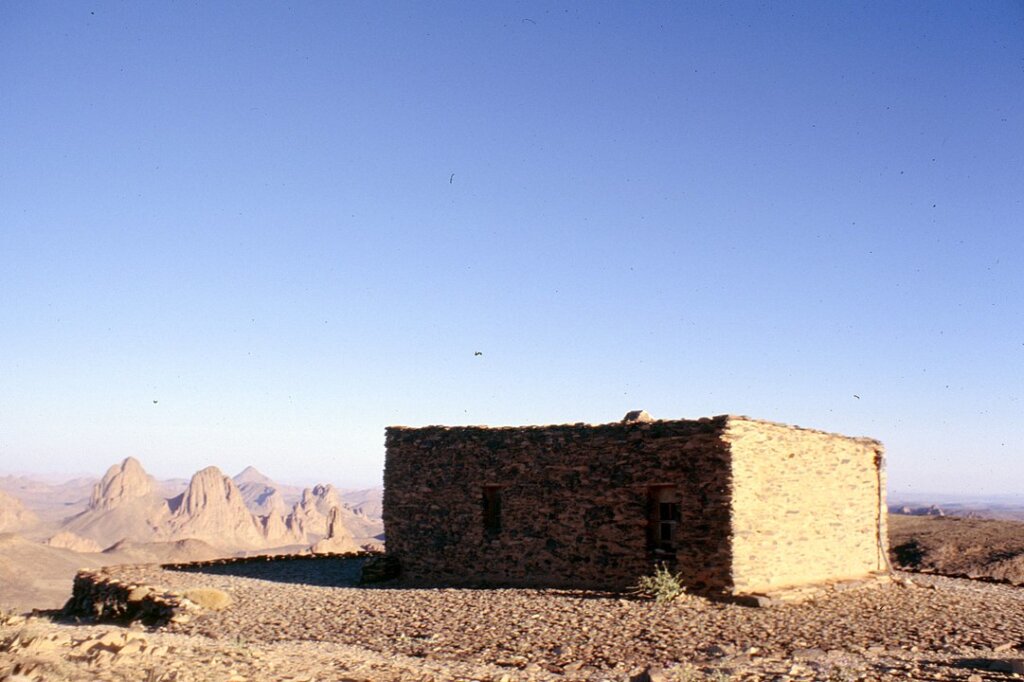
Shortly after Charles left France, he traveled to Morocco in hopes of establishing a religious community that offered hospitality to all—his first attempt at founding an order. No one joined him, but eventually a former army friend invited him to Algeria, to live with the Tuareg people.
There, Charles learned the native language, wrote a Tuareg-French and French-Tuareg dictionary, and translated the Gospels and many of the Psalms into Tuareg (after he died, a two-volume collection of his Tuareg poetry was published).
During this period he wrote a letter to his cousin, Marie:
I have permission to found. I have been authorized to found a new religious family under the rule of Saint Augustine, under the name of the Little Brothers of the Sacred Heart of Jesus, for adoring night and day the Holy Eucharist in perpetual exposition, in the solitude of the cloister, in countries of mission, in poverty and work. I am collapsing under the weight of my blessings, of the vision of what I should be, of the vision of the good that I should do and of the good that would be done were I to be sanctified.
St. Charles de Foucauld
And yet he would obtain no followers.
In 1905, Charles traveled to Tamanrasset, Algeria, where he spent the rest of his life.
It was there, in the middle of the Sahara, that he lived out his faith simply among the people of the desert village. Those who knew him said it was obvious he lived a life devoted to God.
While he had once said he wanted to live in Nazareth because that is where Christ lived, he came to believe that the life of Christ is lived wherever one lives:
The life of Nazareth can be led anywhere, even in a place whose greatest advantage is in making us ready for the next place…provided that we are where Jesus wants us.
Charles de Foucauld
When “Failure” Leads to Holiness
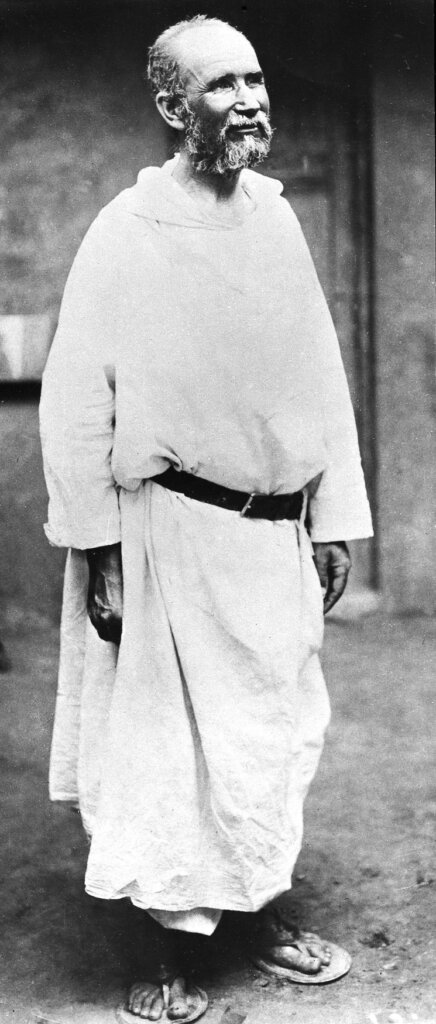
It is tempting to think of Charles’s lack of followers as a failure.
He even attempted to teach catechism to those who lived in the area but no one “stuck.”
And yet Charles, while he “awaited a miracle,” tried to always lived in the present moment and be grateful for what he was given.
Whatever happens, I shall be perfectly satisfied. I could do no other than lose myself by merging with the divine will, I would prefer for myself total failure, perpetual solitude, nothing but setbacks. I do all I can in order to have companions by sanctifying myself in silence. If I had them, I would rejoice along with many worries. Not having them, I rejoice completely.
A letter to Bishop Guerin from Charles de Foucauld
The Death of St. Charles de Foucauld
During World War I, attacks were made on the French living in Algeria, and Charles was forced to build a fort to protect the people in the surrounding area; it became a place of refuge for many.
On a daily basis, Father de Foucauld would give food to those who begged, always making sure to ask anyone who begged to do a job or to work so that they might remained dignified.
In the end, not one other person would join his order. Instead of succumbing to discouragement, however, Charles counted this as a blessing to keep him ever humble before the Lord. He continued to offer all he had to God to do with as He pleased.
Sometime shortly before his death, he penned a prayer of abandonment, which many pray to this day.
Now his life was approaching its fullness. God would soon take him home.
Marauders—who set out to steal from the fort Charles had built in Tamanrasset—seized him and dragged him into the trench in front of his fort on December 1st, 1916. As two of his friends approached, Father de Foucauld attempted to warn them, and was shot by one of his captors at close range.
His life was consummated to God—a gift that he had received and offered back.
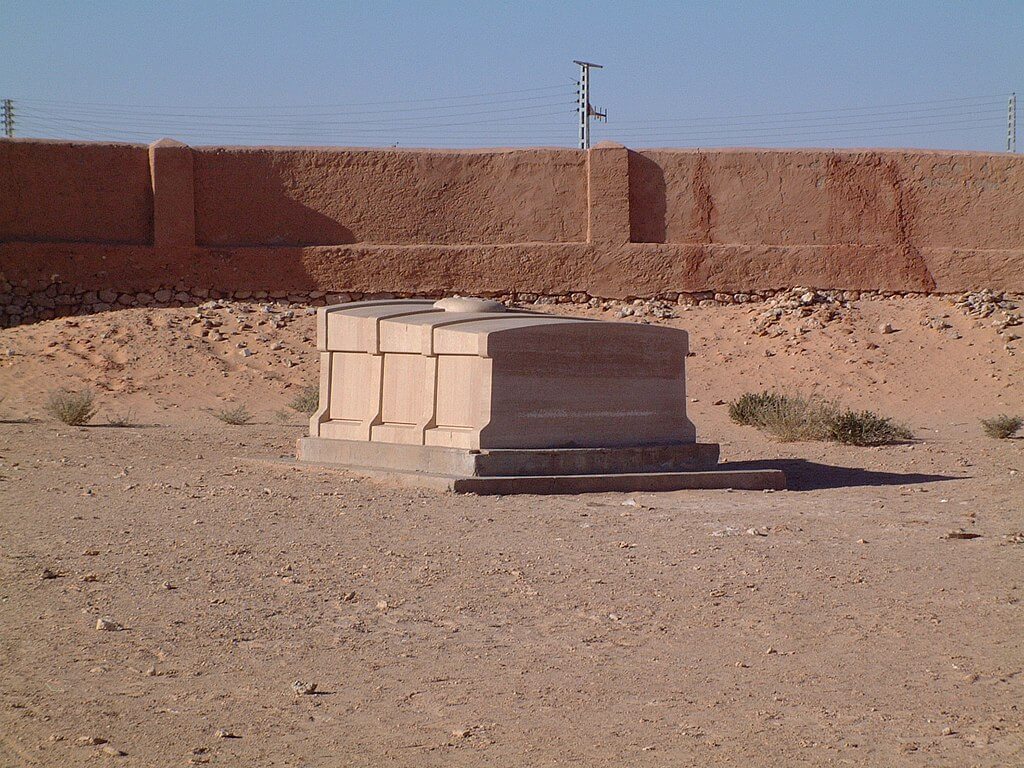
A New Saint and His Miracles
Charles de Foucauld was beatified on November 13th, 2005.
In May 2020, Pope Francis approved a second miracle attributed to Blessed Charles’ intercession, which has paved the way for his canonization.
May 15th, 2022, is the day of his canonization.
The Two Miracles of Charles de Foucauld
The case of Giovanna Citeri Pulici
The first miracle which led to the beatification of Charles de Foucauld took place in 1984 when Giovanna Citeri Pulici, an Italian woman from Milan, was cured of bone cancer through his intercession. Her husband, Giovanni Pulici, invited his two sisters, both nuns, as well as the parish priest, to pray with him to “the hermit of Tamanrasset,” for whom he had a great devotion. It was not until the end of 2000 that Giovanni learned that the postulator of the cause was seeking a miracle. The diocesan inquiry was started in Milan in the autumn of 2002, and concluded in the spring of 2003. In Rome, after an extensive study, the Medical Commission recognized the miracle in July 2004, followed on October 27th by the theological Commission in charge of the dossier.
The case of Charles, a 21-year-old carpenter
On May 26th, 2020, Pope Francis signed the decree approving a second miracle attributed to the intercession of Blessed Charles de Foucauld, paving the way for his canonization.
On November 30th, 2016, the eve of the centenary of Charles’ death, a 21-year-old carpenter helping to restore St. Louis school’s Chapel in Saumur in France fell over 15 meters onto a pew whose armrest pierced his left side. Seven doctors examined the young man and concluded unanimously that falling from such height and being impaled generally causes organs to “explode.” After the accident, hundreds of people in the Parish of Saumur prayed to Charles de Foucauld to intercede for the healing of the young man.
He was hospitalized for six days and returned to work within two months without suffering any physical or psychological side effects. Doctors concluded that this incident could not be explained medically.
Eternal Life: Our True Home
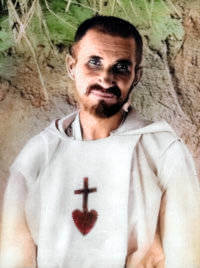
It has been said that one of the secrets to the saints’ holiness is that they kept their own death at the forefront of their minds, understanding that this earthly life was not their home.
This was the sentiment of Blessed Charles de Foucauld who once said:
“The most important moment of our life is the moment of our death. We move closer toward this moment with each passing day.”
“Think often of death, so as to prepare for it and appraise things at their true value.”
One of the characteristics that shone through the life of Charles de Foucauld after his conversion was his complete trust in God, which he exercised to a heroic degree—even when faced with the most difficult of circumstances.
This humble saint lived the life of a contemplative while also serving the poor. No one ever joined his humble mission and few knew who he was when he died, yet he remained forever devoted to God. Today, his words bring inspiration and consolation to those who hear them.
Every cross, great or small, even small annoyances, are the voice of the Beloved. He is asking for a declaration of love from us to last while the suffering lasts.
St. Charles de Foucauld
St. Augustine once said that “We are restless until we rest in Thee” and Charles de Foucauld was a witness to this truth. Like St. Augustine before him, Charles once sought many things before he found rest and peace in a life lived for Christ.
We abandon ourselves to divine providence when we accept all the events and circumstances that come to us in the journey of life, solely for the reason that it is the will of God who sends them. This is the very essence of what it means to “walk by faith,” which, as St. Paul describes, is the proper mode of life for every disciple of Christ: “For we walk by faith, not by sight…we make it our aim to please him” (2 Cor. 5:7, 9).
Here is the prayer of abandonment which Charles de Foucauld left us, once that can help us practice radical abandonment to God:
Father, I abandon myself into your hands; do with me what you will. Whatever you may do, I thank you: I am ready for all, I accept all. Let only your will be done in me, and in all your creatures. I wish no more than this, O Lord. Into your hands I commend my soul; I offer it to you with all the love of my heart, for I love you, Lord, and so need to give myself, to surrender myself into your hands, without reserve, and with boundless confidence, for you are my Father. Amen.
St. Charles de Foucauld
St. Charles de Foucauld, pray for us!
